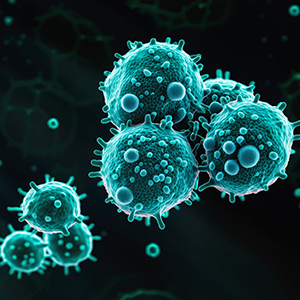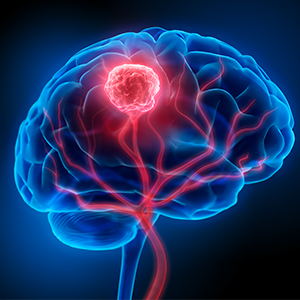-
Science Saturday: How disease, diet, and genomics interact with gut virome

Mayo Clinic researchers published a comprehensive analysis of the gut virome in Gastroenterology, showing how disease, diet and genomics interact with the gut virome in irritable bowel syndrome. This common disorder affects the intestine and manifests as abdominal pain associated with constipation, diarrhea or both.
The gut virome is one component of the microbiome (bacteria, fungi, viruses). It includes viruses that specifically attack bacteria (bacteriophages/phages) or those affecting humans (eukaryotic viruses. e.g., norovirus). Hence the gut virome can cause symptoms by direct effects on the gut or by shaping the composition and function of the gut bacteria, which then alter gut function. Purna Kashyap, M.B.B.S., the Bernard and Edith Waterman Co-Director for the Microbiome Program in Mayo Clinic's Center for Individualized Medicine Microbiome Program explains the virome's role is especially relevant in conditions where the microbiome is considered an essential factor in the development of disease and irritable bowel syndrome is one such condition.
Researchers take a step further by analyzing the virome
"Most present-day virome studies use metagenomic DNA sequencing as a starting point," says Dr. Kashyap. "However, this would miss a significant number of human gut pathogenic viruses (e.g., rotavirus, Norwalk virus, picornaviruses) that have RNA genomes."
Researchers analyzed the virome after enriching viral-like particles in the sample and converting RNA genomes to DNA. They combined this with multi-omics (a biological approach using multiple omics technologies), clinical and dietary data to understand how the virome fits within the context of health and disease.
Gut virome is stable and is associated with changes in gene expression in the gut
With data collected from healthy participants and different subsets of patients with irritable bowel syndrome, the researchers found that the gut virome was relatively stable over the 6-month study period. They also found the virome links with the expression of specific genes (the process of turning on a gene to produce RNA and eventually protein) linked to immune function in the intestine. Dr. Kashyap adds many plant genomes and an increasing number of known phages use RNA as their core genetic construct.
Gut virome in irritable bowel syndrome

Gut bacteria and their metabolites have been found to regulate many of the mechanisms underlying irritable bowel syndrome. Still, there is little known about the gut virome, especially in different subsets of the condition, with symptoms of either constipation or diarrhea. In multi-omics analysis, researchers found a correlation between bacteriophages and gut bacterial composition and function. They also identified irritable bowel syndrome subset-specific changes in the bacteriophage population.
"This is important as bacteriophages may be responsible in part for shaping the gut bacterial population in these disease subsets and would also be important when considering probiotic therapy," says Dr. Kashyap. "If patients have bacteriophage that can kill the probiotic bacteria — it may not be very effective — do we need to tailor probiotics to match the bacteriophage population?"
Norovirus transmission was observed in healthy participants, independent of genetics. Dr. Kashyap says he was surprised to find norovirus almost exclusively in healthy asymptomatic participants rather than those with irritable bowel syndrome, even though asymptomatic norovirus carriage can be as high as 30% based on individual diet and lifestyle.
Dr. Kashyap explains a possible reason why it was not as prevalent in patients with irritable bowel syndrome is that patients with gastrointestinal symptoms are more likely to have had stool testing for viral and bacterial pathogens and treated if norovirus was detected. The finding of norovirus matched the time when it was found to be in circulation, highlighting the technical capability of the researcher's analysis pipeline.
Plant-specific viruses covary with irritable bowel syndrome and, to a small extent, with diet. The researchers found connections between plant viruses and diet, consistent with diet as a source of viruses. Significant correlations were found between each group of plant viruses and food groups, but these correlations were more prominent in patients with constipation-predominant irritable bowel syndrome. Researchers note that this may reflect specific dietary intake or an altered microbial ecosystem, given the longer transit time in the gut.
"Our study considered all genomic virus types to provide a comprehensive analysis of the virome, adding to the accumulating data on gut virome changes in irritable bowel syndrome and the temporal stability of the virome," says Dr. Kashyap.
Funding
This work was a joint effort between the University of Minnesota, Washington University at St. Louis and Mayo Clinic. This work was supported by National Institutes of Health grant DK114007 (Purna Kashyap), Mayo Clinic Center for Individualized Medicine, Rochester, Minn. (Purna Kashyap), Minnesota Partnership for Biotechnology and Medical Genomics (Purna Kashyap and Dan Knights.); and National Institutes of Health grant 5RC2DK116713-02 (Scott Handley).

Related Articles







